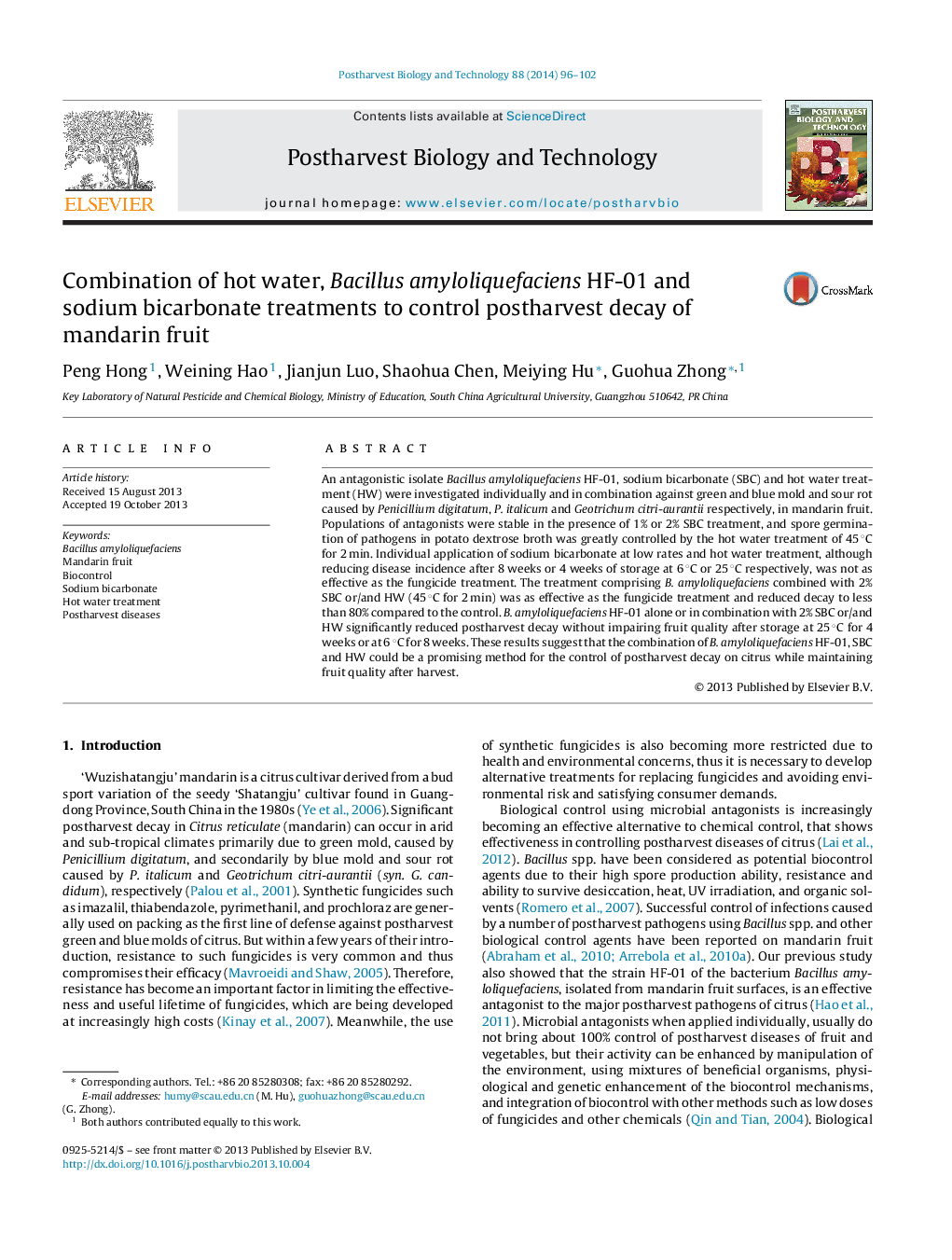| Article ID | Journal | Published Year | Pages | File Type |
|---|---|---|---|---|
| 4518369 | Postharvest Biology and Technology | 2014 | 7 Pages |
•2% sodium bicarbonate (SBC) had no clear negative effect on Bacillus amyloliquefaciens strain HF-01 survival.•The combination of strain HF-01, SBC and hot water significantly reduced postharvest decay on citrus.•This combined treatment also reduced natural decay development of mandarin fruit.•The combined treatment did not impair the quality parameters of fruit.
An antagonistic isolate Bacillus amyloliquefaciens HF-01, sodium bicarbonate (SBC) and hot water treatment (HW) were investigated individually and in combination against green and blue mold and sour rot caused by Penicillium digitatum, P. italicum and Geotrichum citri-aurantii respectively, in mandarin fruit. Populations of antagonists were stable in the presence of 1% or 2% SBC treatment, and spore germination of pathogens in potato dextrose broth was greatly controlled by the hot water treatment of 45 °C for 2 min. Individual application of sodium bicarbonate at low rates and hot water treatment, although reducing disease incidence after 8 weeks or 4 weeks of storage at 6 °C or 25 °C respectively, was not as effective as the fungicide treatment. The treatment comprising B. amyloliquefaciens combined with 2% SBC or/and HW (45 °C for 2 min) was as effective as the fungicide treatment and reduced decay to less than 80% compared to the control. B. amyloliquefaciens HF-01 alone or in combination with 2% SBC or/and HW significantly reduced postharvest decay without impairing fruit quality after storage at 25 °C for 4 weeks or at 6 °C for 8 weeks. These results suggest that the combination of B. amyloliquefaciens HF-01, SBC and HW could be a promising method for the control of postharvest decay on citrus while maintaining fruit quality after harvest.
